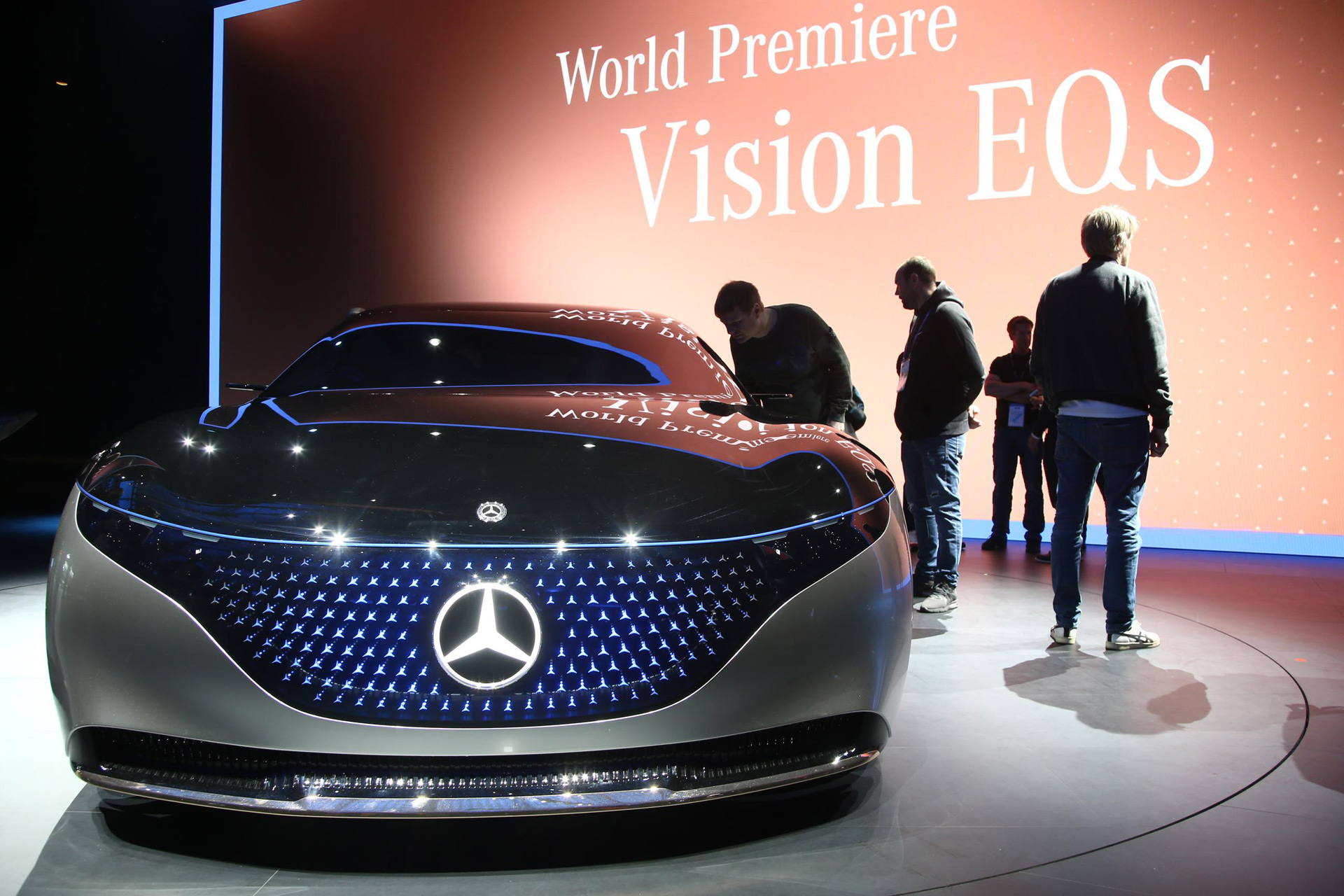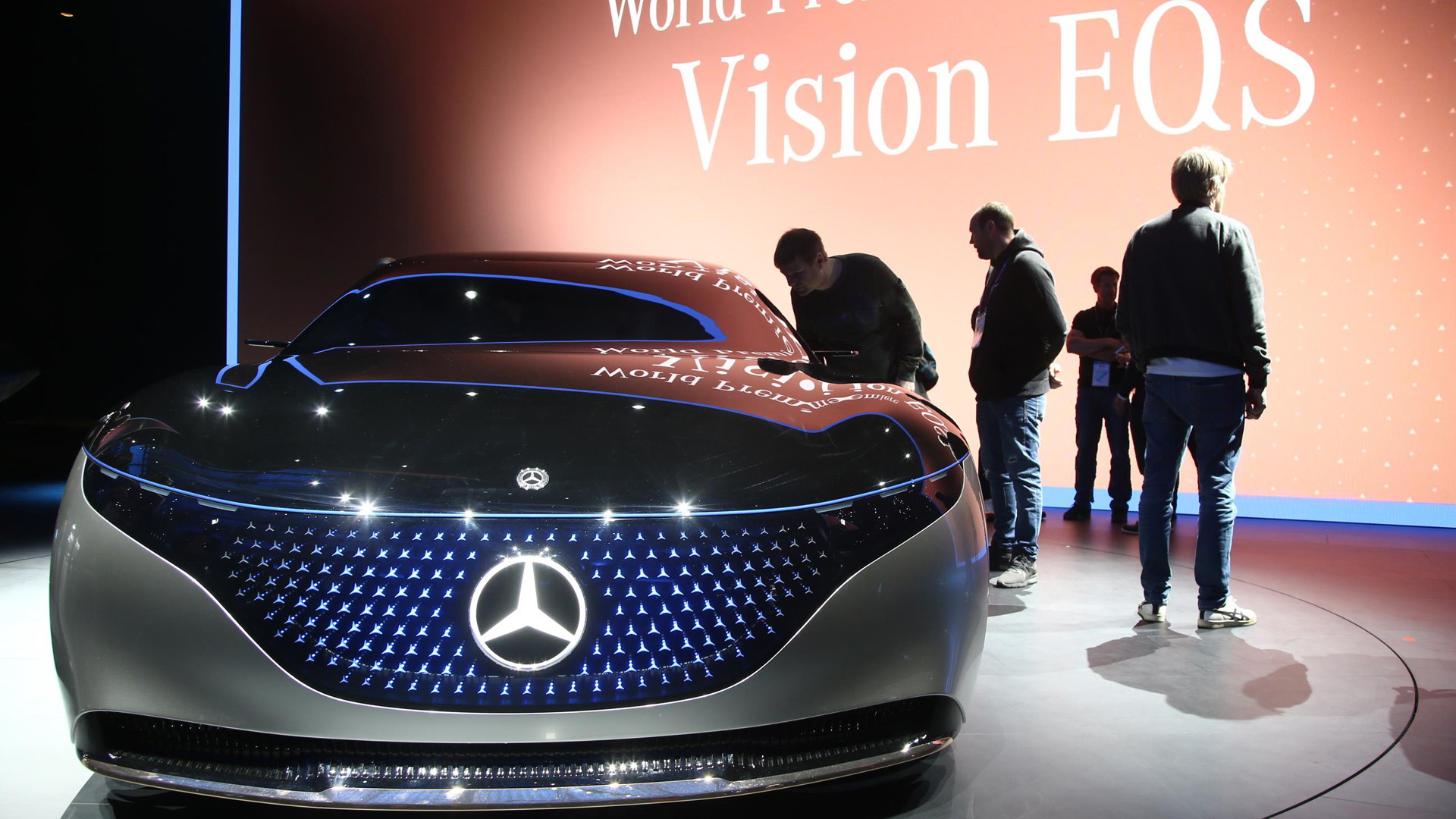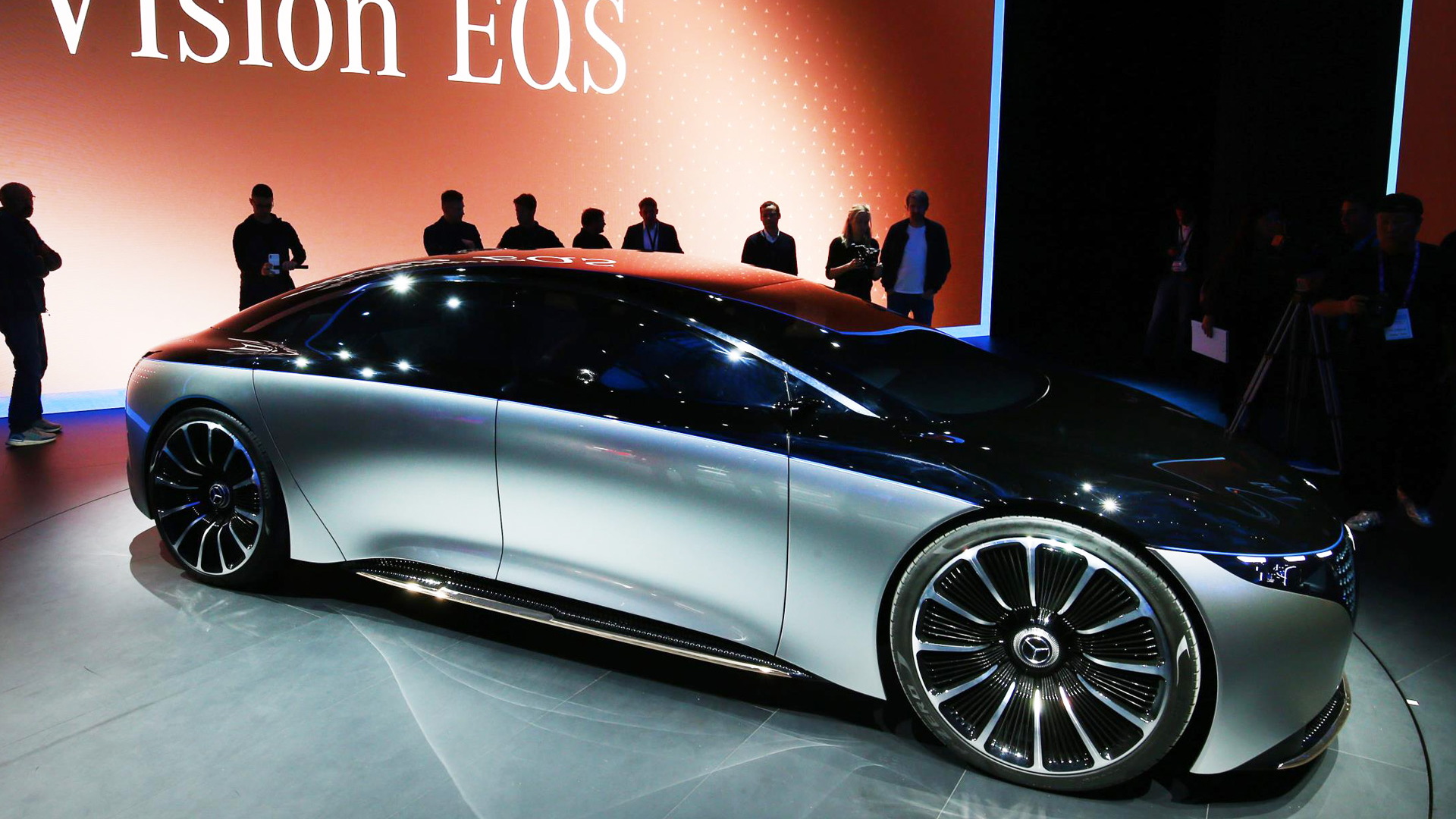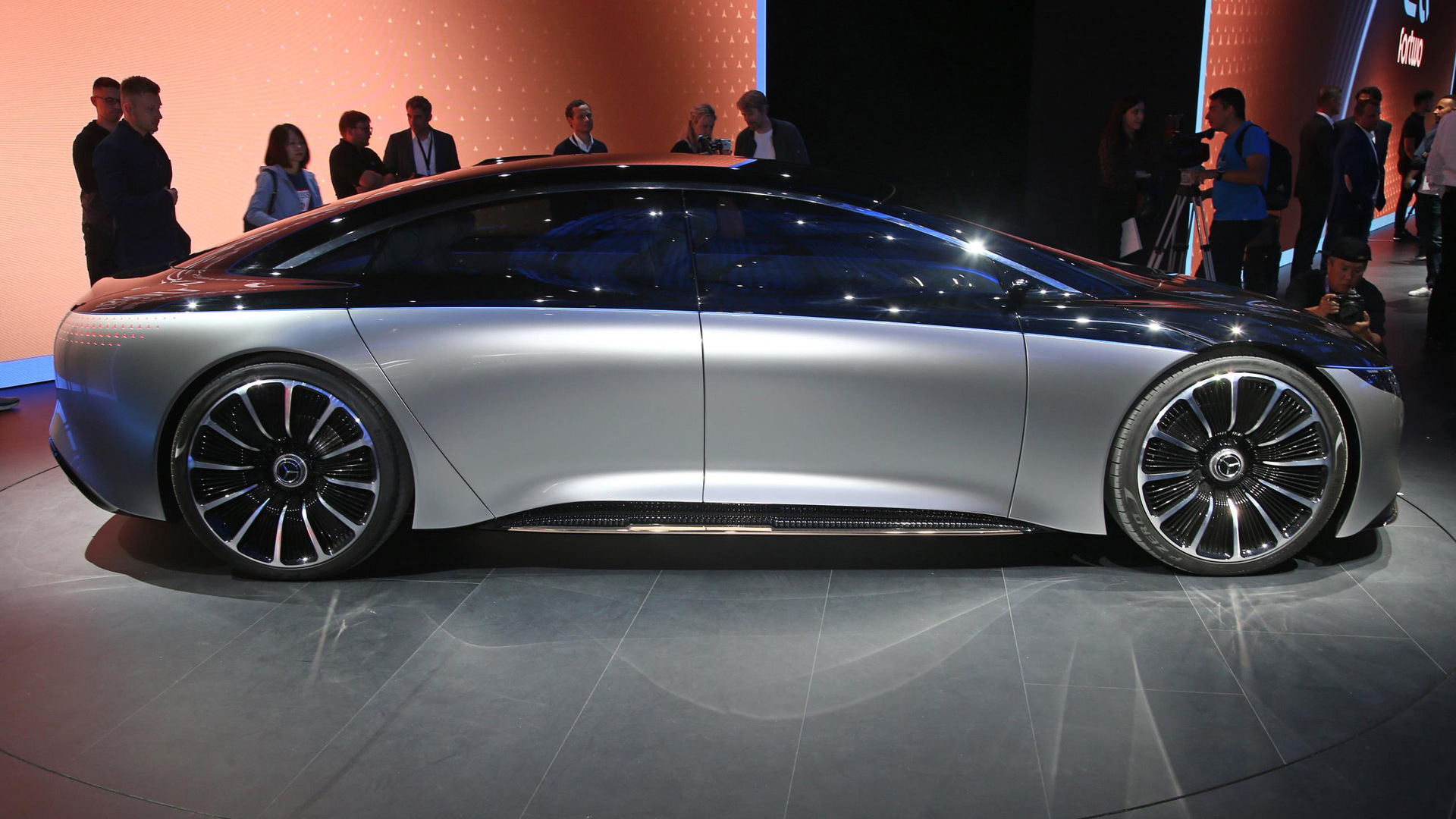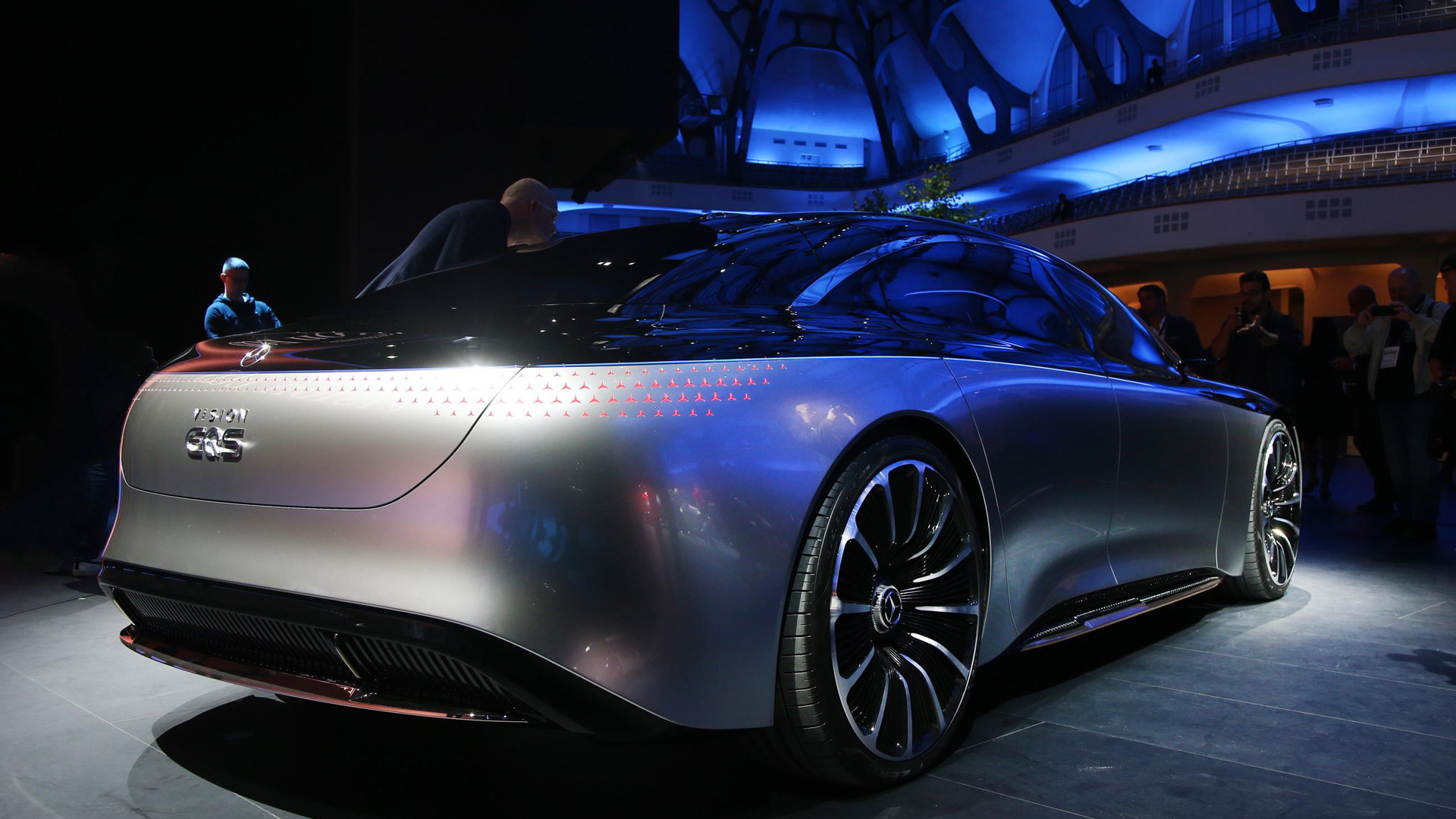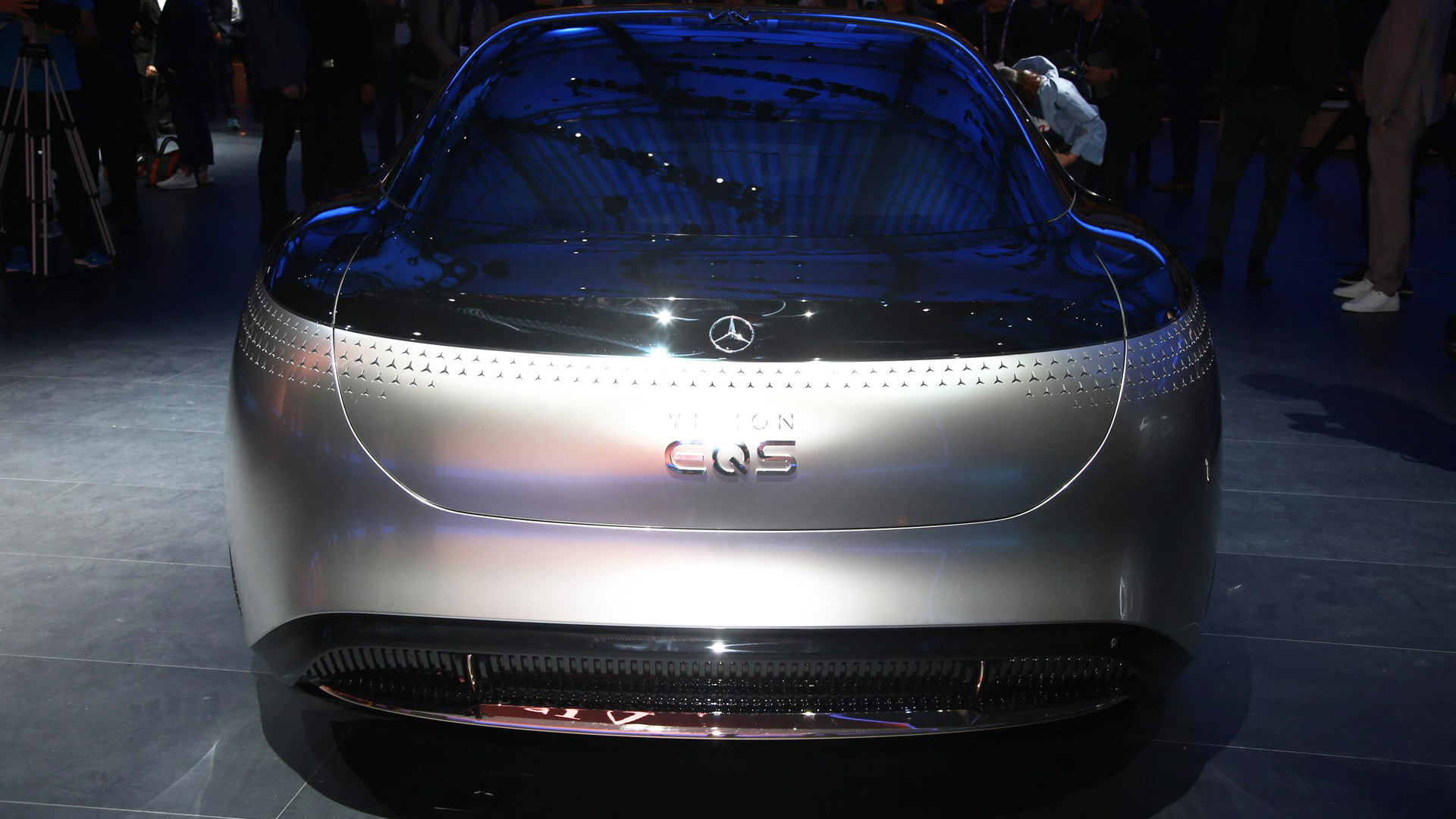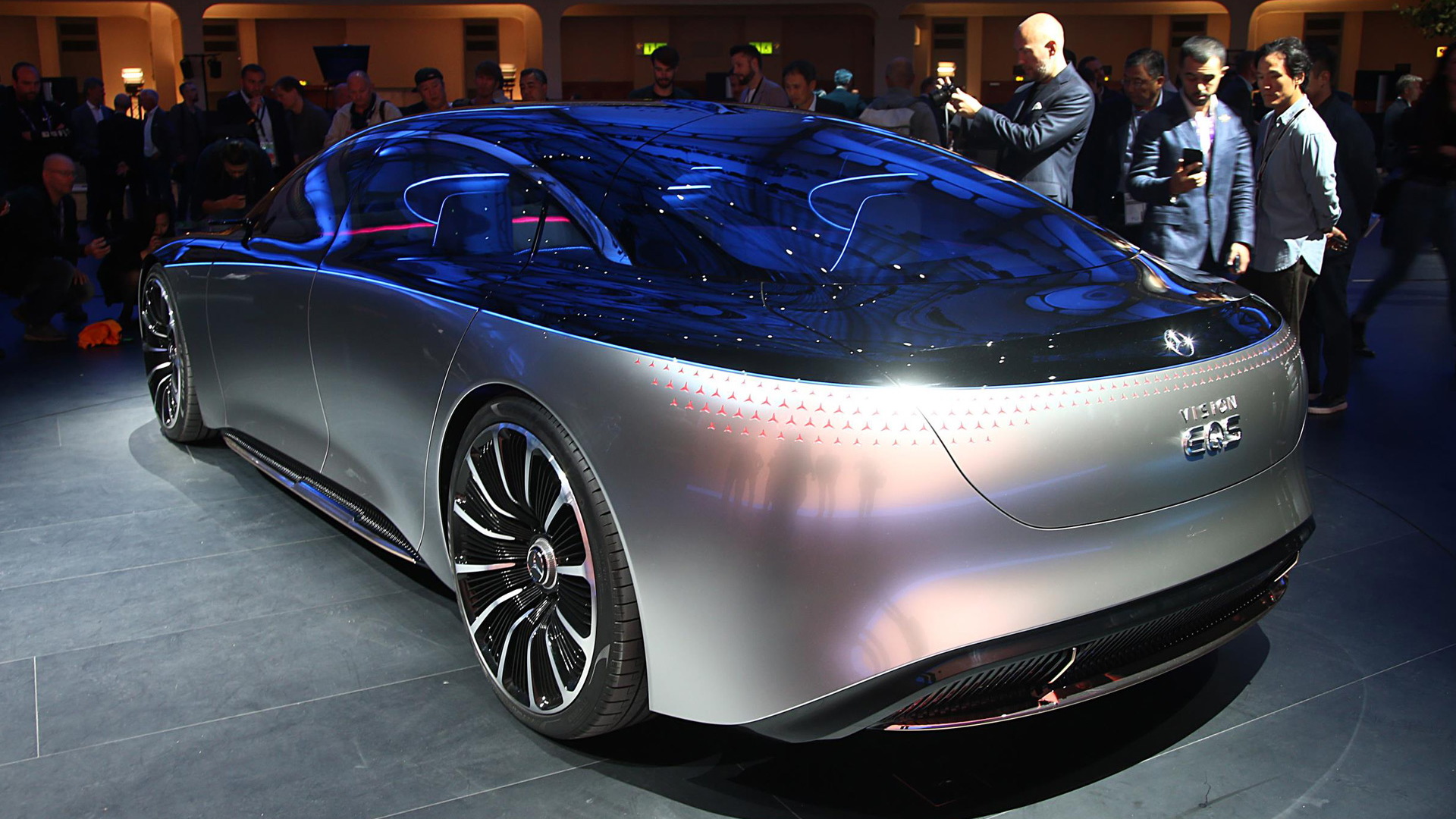Mercedes-Benz on Tuesday unveiled the Vision EQS at the Frankfurt International Motor Show. The car is a concept that previews a large electric sedan to sit alongside the flagship S-Class in the automaker's lineup.
Mercedes execs have hinted at the EQS starting production in 2020, which means we'll likely see it arrive in showrooms as a 2021 model. It will target high-end versions of the Tesla Model S and to a lesser degree the smaller, sportier Porsche Taycan.
The Vision EQS is thought to closely resemble the production model. The design is characterized by a sleek, coupe-like profile coupled with a low, hunkered-down stance. It looks muscular in the photos and even more so in real life.

2021 Mercedes-Benz EQS spy shots - Image via S. Baldauf/SB-Medien
From our spy shots of EQS prototypes, we know the production model will get traditional side mirrors instead of the camera-based system shown on the concept. We also expect the production model to skip the concept's digital “grille.” Enclosed within this glass structure are 188 individual LEDs that resemble free-floating stars in the shape of the Mercedes logo.
The innards of the Vision EQS are decidedly futuristic, with a wrap-around dash design that flows from the front of the car all the way to the back, creating a divider for the car’s four-seat cabin. There’s also a large display screen in the center stack, a couple more screens integrated into the front armrests, and a rectangular steering wheel.
The concept, and the production model it will spawn, rides on a new dedicated EV platform from Mercedes, code-named MEA2 (MEA1 is found in the 2020 EQC electric SUV and is derived from Mercedes' MHA platform for SUVs like the GLC and GLE). The benefit of the dedicated EV platform is the low packaging requirements for the powertrain compared to a conventional internal-combustion car design. The result is a sedan with the footprint of a mid-size car but the space of a full-sizer.

Mercedes-Benz Vision EQS concept
The highly modular design of the platform means the wheelbase and track, as well as all other system components, and especially the battery, can be changed to suit various body styles. The construction features a mix of aluminum, carbon fiber and steel to help meet weight and rigidity requirements. The floor-mounted battery also forms part of the structure making it very rigid, which has allowed for the removal of the B-pillar on the concept. Unfortunately, this design trait won't make production, judging by the prototypes.
In the concept, electric motors feature at the front and rear axles to form an all-wheel-drive system. Peak output is 469 horsepower and 560 pound-feet of torque, which is enough for 0-60 mph acceleration in under 4.5 seconds. Top speed is limited to 125 mph.
The lithium-ion battery has a capacity of approximately 100 kilowatt-hours which Mercedes said will enable a range approaching 435 miles on the WLTP cycle. An EPA-rated range would be lower, though still should be higher than 300 miles. At the maximum charging rate of 350 kilowatts, Mercedes said owners could expect an 80-percent charge in less than 20 minutes.
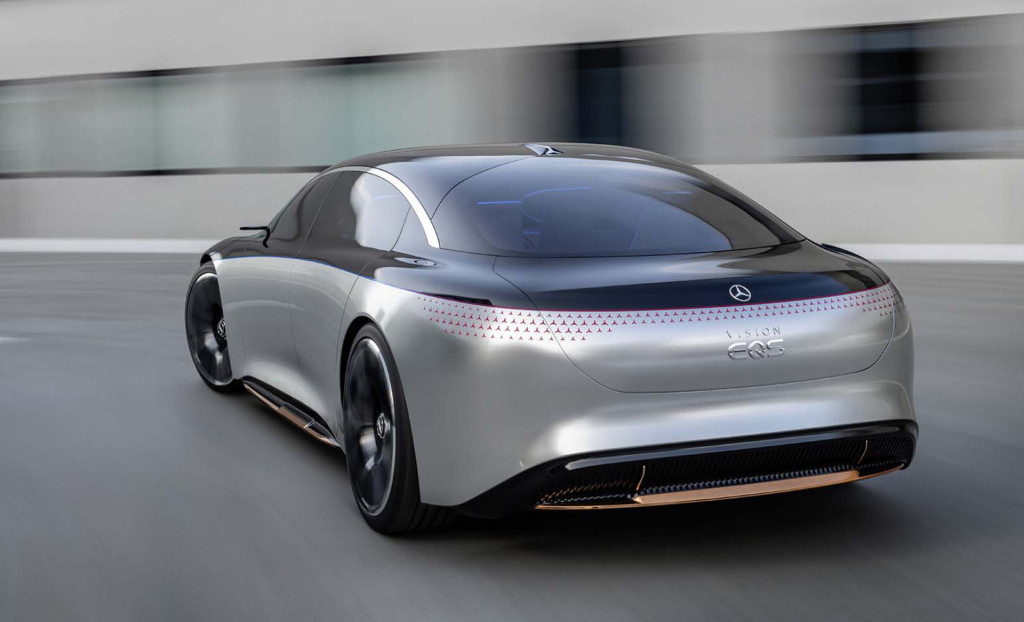
Mercedes-Benz Vision EQS concept
It wouldn't be a modern concept without some self-driving element. Mercedes said the Vision EQS is fitted with an SAE Level 3 self-driving system, meaning it can handle some situations on its own but requires the driver to be ready to take over at a moment's notice. Like the platform, Mercedes is developing its self-driving technology to be modular so that sensors and software can be upgraded as the technology advances.
Mercedes is also using the Frankfurt auto show for the debut of the EQV, an electric version of the V-Class minivan. While the V-Class is sold in the United States as the Metris commercial van, the electric EQV version isn't expected here.
For more from the Frankfurt auto show, head to our dedicated hub.
